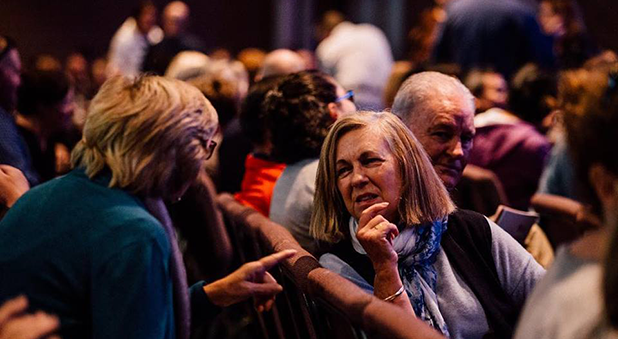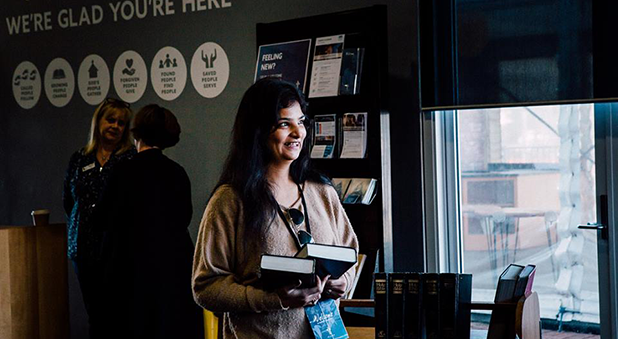While the first 1500 years of the Christian church resulted in an unbiblical and unhelpful elevation of celibacy and denigration of marriage, the 500 years that have passed since the Reformation have achieved just the opposite. When pastoral attitudes and theology are 500 years in the making, there can be no quick fix. Nevertheless, if we wish to be committed to loving and honouring our never married, divorced or widowed Christian friends and family, here are a few ways forward for us to consider.
First, most single Christians long to experience an authentic sense of belonging within their church families. Very often our church calendar and culture are dominated by children’s activities, youth events, parenting classes, marriage courses and outreach to local families. The clear majority of our ministers tend to be married family men and sermons can be full of family-based illustrations and applications.
None of these are bad things in and of themselves, but together they often leave single Christians feeling somewhat invisible, lonely and perhaps even unwelcome in their churches. One of the ways forward must surely be to encourage families to welcome single church members into the family life of the church.
It is also important for us to remember that allof us have been adopted as sons and daughters into one, new, primary family. Single Christians (whether they be never married, divorced or widowed) don’t want to be made to feel like their church families are trying to create a place of belonging for them so much as they long for their church families to recognise that, in Christ, they already truly and equally belong.
How might your church family commit itself to honouring the vitally important place that single people of all circumstances already havewithin your midst, as those with whom you have been united in Christ?
Second, as Christians who live in a global, technological and individualistic age, it is important for us to recognise the impact and influence the world around us has on our own attitudes and thinking. Just the other day I was listening to a podcast which warned Christians of the potential danger we now face of being unwittingly “colonised” by the culture around us. Is our elevation of marriage a result of what the Bible says about it or are there unquestioned elements of non-biblical idealisation and perhaps even idolisation in our thinking on this topic?
Have we thought carefully about whether romantic love and sexual intimacy really are absolutely necessary for personal fulfilment, and how does that relate to what Scripture says about ultimate satisfaction being found in Christ? How can we think rightly about the place of our nuclear families given that Jesus himself redefines the very notion of family (Matthew 12:46-50) and calls us into a new, primary and eternal family? How does all of this effect the way that we think and talk about God’s good gift of singleness for all who are single? Are we properly honouring those who have received that gift as he would have us do? As God’s people we need to keep questioning our assumptions about marriage, singleness and sexuality against what Scripture teaches.
Finally, how might we think about singleness and marriage in light of the full revelation of God’s word?
As I spent that first year of my PhD reading and listening to all those resources, I realised just how much of our thinking about marriage is firmly grounded in the creation accounts of Genesis 1-2. That is obviously a very good place for us to start! However, it is not a good place for us to end. The storyline of Scripture has a trajectory from creation in Genesis to new creation in Revelation, with Jesus at its very heart and centre.
As we consider the place of singleness and marriage in the Christian life, we ought not just gaze back over our shoulders to the time of creation, but also look eagerly forward to the time of the new creation and the ultimate wedding that will then take place. What might our understanding of the goodness, place and purpose of singleness in the Christian life look like if we were to allow the picture of eternity – an eternity in which Jesus himself says that none of us will be married to each other (Matthew 22:30) – cast its glorious shadow forward into earthly life here and now?
The challenge for each of us is to allow our understanding to be so shaped by the gospel of Christ that we see the single life as God truly sees it – not as a problem but, in fact, as a privilege.
The Rev Dani Treweek is undertaking doctoral research into a theological ethic of singleness. She served as the women's pastor at St Matthias’, Centennial Park for almost seven years and is chair of the new Single Minded Conference.
PART ONE: THE PROBLEM WITH SINGLENESS

PART TWO: WHY DO WE TREAT THE SINGLE LIFE AS UNFULFILLING?
Get informed
Single Minded is a new conference that is about singleness, but for everyone. It seeks to:
· encourage single Christians in their gospel maturity, contentment and service;
· equip married Christians (including ministers) to better love and pastor the single members of their Christian family; and
· do all this by teaching what the Bible really says about singleness.
The program for Single Minded includes two plenary sessions featuring British speaker and author Sam Allberry, a choice of six electives presented by a range of faithful and gifted speakers, a Q&A panel and a variety of interviews throughout the day.
The conference will be held at Village Church, Annandale on Saturday, September 22. Tickets are selling fast, but livestreaming options are also available.























